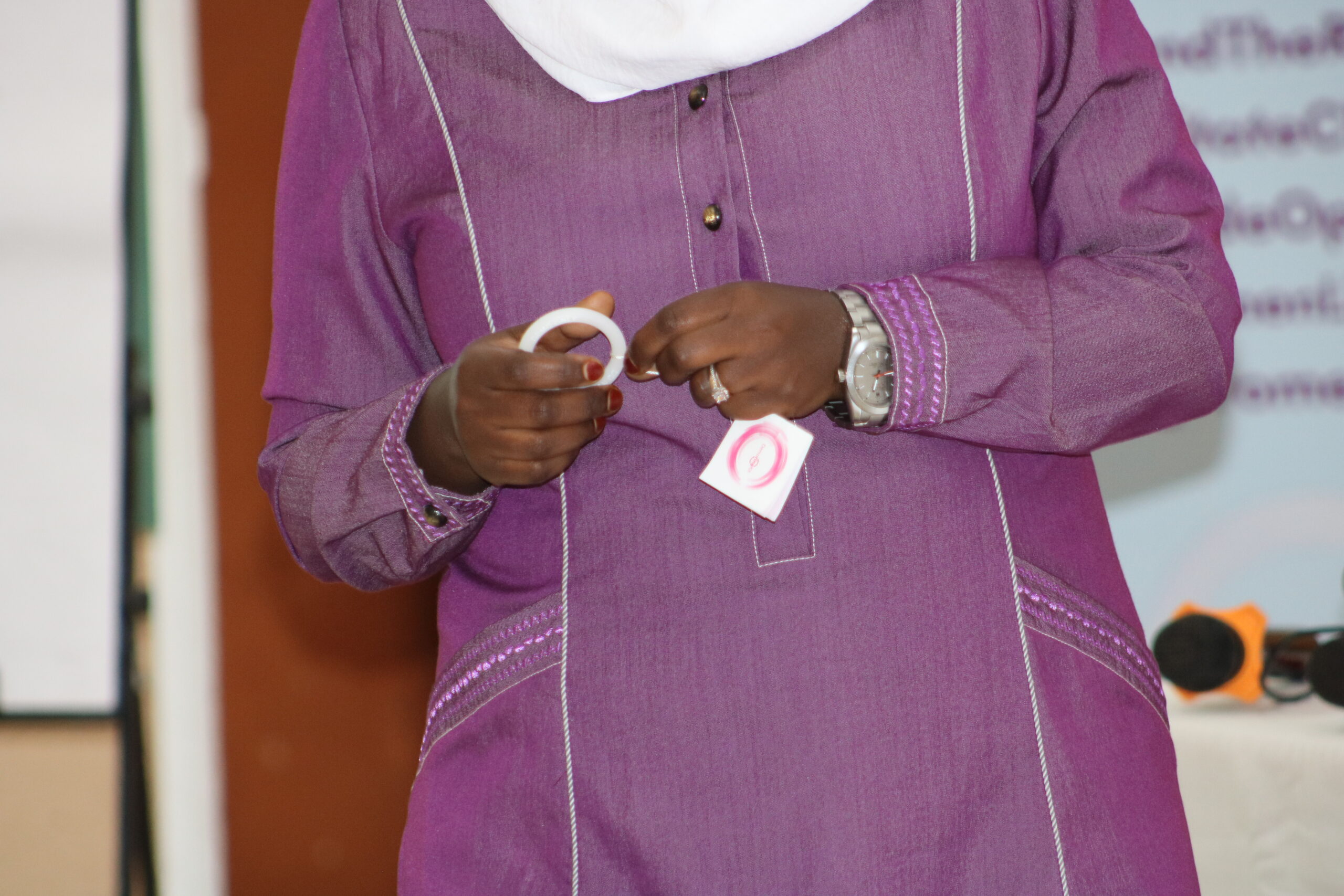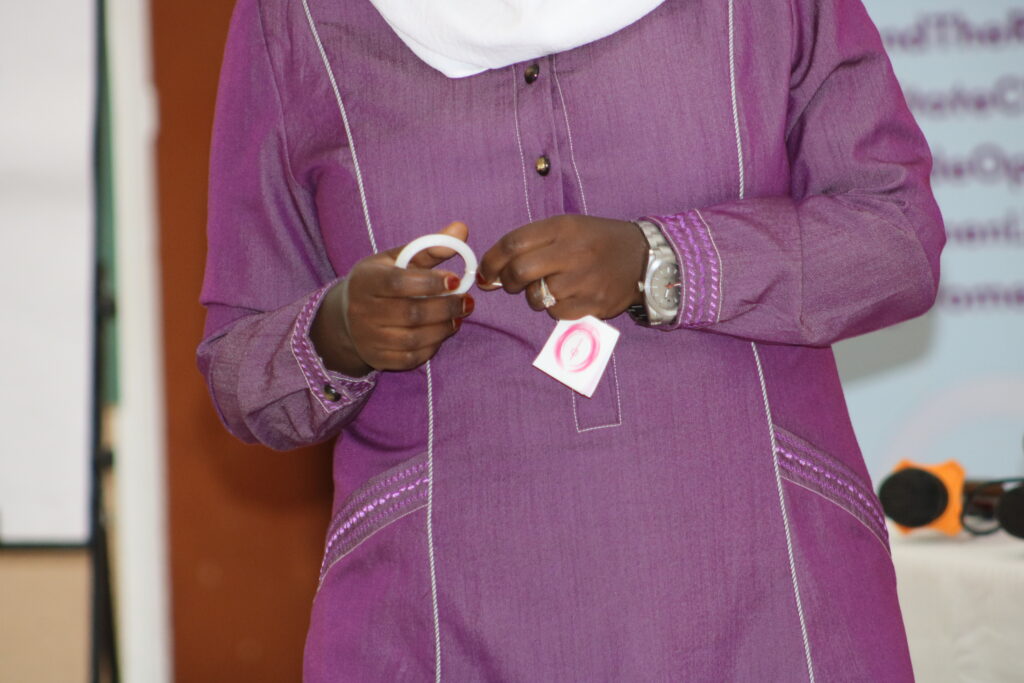
 Mama FM
Mama FM

 Mama FM
Mama FM
4 August 2025, 1:01 pm
By Byamukama Alozious
The Dapivirine Vaginal Ring (DVR), one of HIV prevention method for women, is facing low uptake in Uganda despite being hailed as a game-changer in the country’s fight against new infections
Many young women and girls continue to face barriers when accessing the ring, including stigma, misinformation, and limited availability in health facilities. The Ministry of Health confirms that only a handful of facilities currently offer the DVR, including MARPI Clinic in Kampala and sites in Jinja, Kyotera, Kyenjojo, and several Mosaic-supported centres. These gaps are especially critical given that adolescent girls and young women account for a majority of new infections.
A dapivirine vaginal ring is effective for 28 days experts say. According to UNAIDS, Uganda’s HIV prevalence stands at 5.5% among adults aged 15-49 years, with an estimated 38000 new infections which was reported in 2023.

Dr. Maimuna Kinawa, Programs Officer for PrEP at the Ministry of Health, acknowledged the uptake challenge but emphasised the ring’s safety and efficacy. “There’s a lot of misinformation. The DVR is safe and effective. When used correctly’’ she said. According to Kinawa, young women appear more open to using the ring compared to older women, largely due to greater awareness through peer networks and youth-friendly clinics.
To increase demand and reduce stigma, the International Community of Women Living with HIV in East Africa (ICWEA) has launched a one-year campaign across Uganda and Kenya, dubbed EmpowerRing Phase 3, the project seeks to educate women on DVR use and increase its accessibility through community-led advocacy, health worker training, and youth peer mobilisation.
During a meeting with health providers in Kampala, Clare Nampenja, Programs Officer at ICWEA, said the campaign centres on choice and empowerment. “We believe in HIV prevention by choice’’. ICWEA is calling for more funding and stronger rollout of the ring as part of the campaign, Clare pointed out that DVR Champions trained will be oriented to lead sensitisation in their communities and fight misinformation.
The Ministry of Health notes that HIV risk among young people is being fuelled by behavioural and psychosocial factors such as low knowledge, early sexual debut, transactional sex, gender-based violence, and poor access to services. Stigma around PrEP and limited ability to negotiate safer sex are also key challenges. Efforts to improve access to HIV prevention tools now include targeted community outreach, social media campaigns, counselling services, and adolescent-friendly spaces.
In a story published by this reporter in August 2024, Uganda’s Ministry of Health had pledged to expand PrEP options including the DVR, oral pills, and long-acting injectables like Cabotegravir and Lenacapavir. Officials including Dr. Herbert Kadama and Dr. Diana Atwine expressed optimism that these tools would reach vulnerable populations. One year later, that promise is being tested by low demand and persistent stigma, but community-led interventions like ICWEA’s campaign are lighting a path forward. As Uganda works toward ending AIDS by 2030, young women must be empowered to choose prevention tools that work for them.